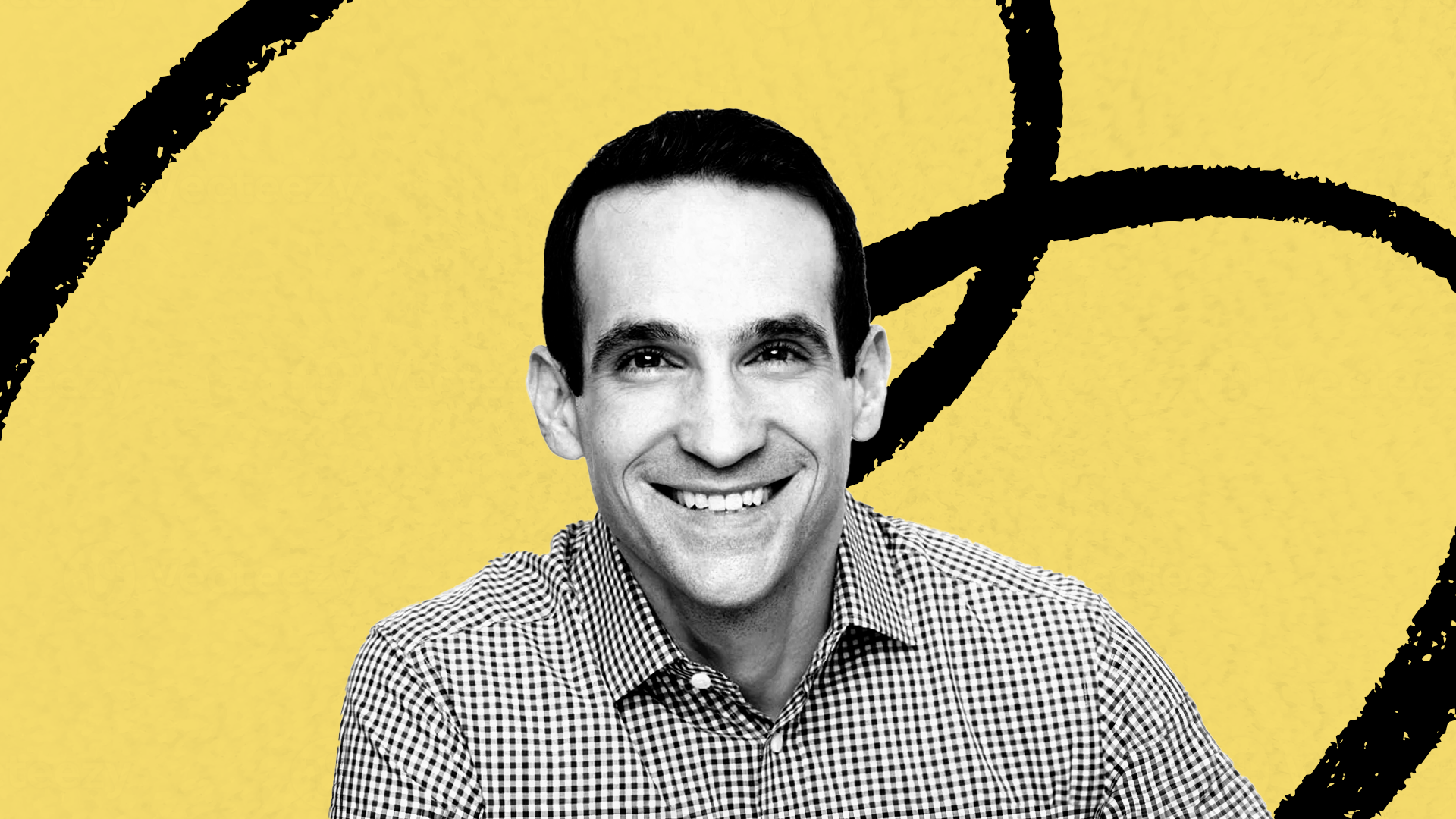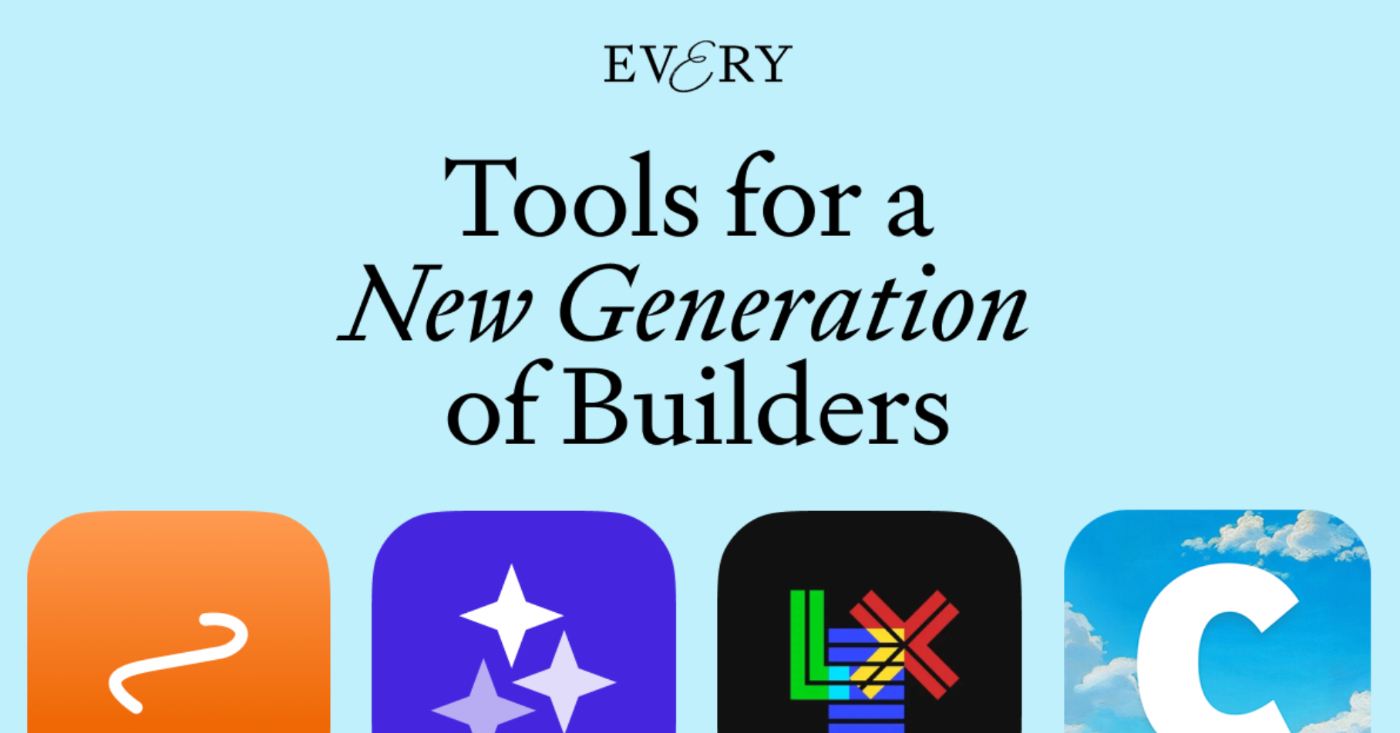
I'm fascinated with how the smartest people in the world get their work done. That's what Superorganizers is about: seeing all of the little habits that make up a great work day and a great life. Artificial intelligence has changed what it means to be productive and efficient at work, so we decided to revisit some of our favorite interview subjects to understand how their routines have changed in the era of AI models. Recently, we spoke to designer Marie Poulin, newsletter writer Polina Pompliano, and former Holloway CEO Andy Sparks. Today, we’re back with Nir Eyal, author of Indistractable.—Dan Shipper
Was this newsletter forwarded to you? Sign up to get it in your inbox.
Nir Eyal wants you to rethink distraction. He’s made that clear in his best-selling book Indistractable, which came out in 2019. In the book, he outlines a four-step process for becoming “indistractable”—master internal triggers, make time for traction (the “opposite of distraction,” as he defines), cut back on external triggers, and prevent distraction with pacts.
But when we first spoke to Nir in May 2020, the world was a different place. It was right after the start of the Covid-19 pandemic, and perhaps before we grasped how much havoc it would wreak on our world, how disruptive it would be for our habits, or how much it would change the ways each of us work. It was also before the advent of artificial intelligence, which promises to automate, improve, or at least assist in our work.
We caught up with Nir to see if his personal workflow has changed and what we can learn from Indistractable in a post-pandemic, generative AI world where so many of us are working from home with distractions everywhere and potentially transformational technology at our fingertips.
Do you still use the same four-step method for eliminating distraction?
Same exact four steps. You know, the Indistractable model is based on decades-old research into human psychology, and so those haven't changed at all. I still use them. And, in fact, now the book has sold over half a million copies. And so it's great to see that it's helped so many people. The model itself hasn't changed one bit.
However, the challenges have changed. I wrote the book before Covid-19, before so many people were working from home. But thankfully, I had a chapter in the book about how to deal with working from home distractions. So it's been just as applicable.
When we spoke, you were skeptical of productivity panaceas. What's your view on AI productivity tools?
There are some tools that I've really enjoyed using. For example, I use a tool called timeOS that will join Zoom meetings and transcribe the text of the meeting and summarize it and create bullet points and action lines. That's been awesome. I really, really enjoyed that. And it actually is now doing something I've always wanted and I wrote about in Indistractable, which is it will make an agenda and talking points to discuss the next time you meet with that person, so that's been a really nice tool.
Sponsored by: Every
Tools for a new generation of builders
When you write a lot about AI like we do, it’s hard not to see opportunities. We build tools for our team to become faster and better. When they work well, we bring them to our readers, too. We have a hunch: If you like reading Every, you’ll like what we’ve made.
I also think the LLMs have definitely helped me in terms of brainstorming. I get writer's block a lot less these days. I don't really believe in writer's block, but the time that I am stuck, I would say, has decreased dramatically because every time I'm stuck, I just have a conversation with ChatGPT or another LLM and it almost always gets me unstuck. So that's been fantastic.
Have you incorporated AI into any of your productivity or organizational workflows?
I just started using Lex to help me with my writing and that's been great, but I can't think of any other tools that I use for productivity per se. I just use a good old calendar and these techniques that I talk about in the book to mostly deal with internal triggers.
How else has your life and work changed since we talked?
I feel like distraction was a big deal a few years ago when I wrote Indistractable and now it's an even bigger deal. I think people are finding that between the news and technology innovation, there's a lot more to get distracted by, and sometimes that's good stuff, there is traction where we want to dive deeper into these amazing tools and technological innovations, but sometimes they can certainly lead us off track.
Is there anything you think people misunderstand about AI and work?
I actually am very hopeful. When we adopt AI into our day-to-day lives, it’ll be in our ears with some kind of interface, or on our eyes with smart glasses. When we break away from the phone interface and then start talking to AI, it could be very much like Scarlett Johansson in the movie Her.
That's kind of a sinister, manipulative perspective, but I think it's not going to turn out that way at all. It's going to turn out much more like Jiminy Cricket. In Pinocchio, little Jiminy Cricket was on your shoulder, and he was your conscience telling you how to be your best self. I think that's what AI is going to become because it's incredibly valuable to have some kind of advisor—maybe it's even in your voice. Can you imagine your voice being used to tell you how you can align your current behavior with your long-term interest?
That's always the problem that I have as a behavioral designer: How do you interrupt a bad behavior? Somebody knows that they're on a diet, they don't want to eat that plate of truffle fries, and yet by the time they think about it, recording your calories doesn't work. That's after the fact. So we need something that is proactive as opposed to reactive.
I think that's going to be the future of AI. It'll be glasses that will look at, hey, here's what you're about to eat or here's the exercise we just tracked you doing. Before you eat that plate of truffle fries, you should know that that's going to put you over your calorie allotment or whatever the case might be. Or maybe you have a conversation with your spouse and the AI is listening and prompting you with a better way to say something so that you don't hurt their feelings and can have a productive conversation. I'm really looking forward to that in the future. I would back that company that could become the Jiminy Cricket of AI.
Scott Nover is a contributing editor for Every. He’s a contributing writer at Slate and the lead writer for the GZERO AI newsletter. He was previously a staff writer at Quartz and Adweek. He currently lives in the Washington, D.C. area.
To read more essays like this, subscribe to Every, and follow us on X at @every and on LinkedIn.
We also build AI tools for readers like you. Automate repeat writing with Spiral. Organize files automatically with Sparkle. Write something great with Lex. Deliver yourself from email with Cora.
Get paid for sharing Every with your friends. Join our referral program.
The Only Subscription
You Need to
Stay at the
Edge of AI
The essential toolkit for those shaping the future
"This might be the best value you
can get from an AI subscription."
- Jay S.
Join 100,000+ leaders, builders, and innovators

Email address
Already have an account? Sign in
What is included in a subscription?
Daily insights from AI pioneers + early access to powerful AI tools










Comments
Don't have an account? Sign up!
It will be interesting to see if AI will become the true companion we "need" or "want". As Nir indicates, it would be great if AI glasses helped inform us when we are about to make a decision that may not fit our goals. From my work over the past 18 months watching people use AI, I believe that many will turn off that feature and just want a sidekick that keeps them happy. It is fascinating to watch the human-AI partnerships and relationships unfold.